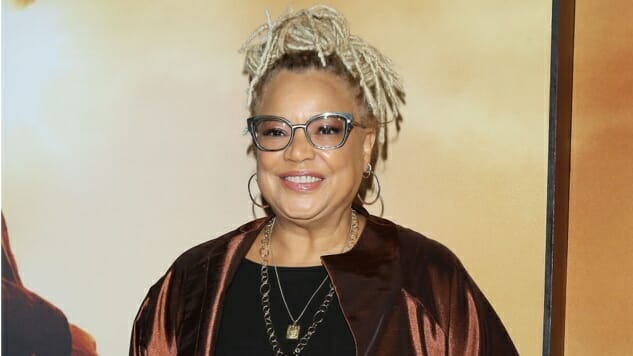Kasi Lemmons Consulted the Ancestors on Harriet
Photo courtesy of Getty Images/Michael Tran
If a common thread exists between Kasi Lemmons’ works, it’s forgotten or underestimated Black Americans. Her debut feature, Eve’s Bayou, sparked a cultural revelation. Beyoncé and Melina Matsoukas described the visual language of that film as a major influence on the “Lemonade” music video. With an average of four years between films, Lemmons may not be the most prolific director working, but she is certainly one of the most interesting. Her films have tackled familial secrets, the overlooked murder of homeless youth, and an interpretation of Langston Hughes’ play, Black Nativity.
During a recent speaking engagement at the Toronto International Film Festival (TIFF), Lemmons spoke to the reasoning behind her long hiatus between films. “I’ve spent most of my time in the past 22 years trying to get movies made,” she explained. “I’m very proud that I’ve gotten to make five movies, but I spend 80% of my time trying to get movies made.”
Her latest film, Harriet, a biopic of American hero Harriet Tubman, came under fire for its depiction of slavery, the choice to cast Cynthia Erivo in the lead role, and the choice to make the big bad a Black slave catcher. Lemmons arrived on the project after Erivo signed on and after the completion of the script. She rewrote portions of the script and received a co-writer credit for her work, and Lemmons maintains that Erivo was the right choice for the role.
When I walked out of a screening of Harriet, I soon discovered how little some of my peers knew about the American hero. As we gathered in the lobby to discuss what we’d just seen, one colleague asked, “Did Harriet really hear voices?” From there, the conversation took a turn. Did I consider Harriet a religious film?
“I didn’t know much about Tubman growing up,” Lemmons says. The visions Tubman experienced in particular came as a surprise to Lemmons. Tubman was hit over the head as a child. As a result, she believed she could hear the voice of God guiding her. The distinction between a film about religion and a religious film lays in the moral messaging. “No, I wouldn’t call it a spiritual film,” Lemmons explains. “Harriet was a religious person, and this is how she told her story.” Tubman never preaches her faith to those she’s trying to free, though she does insist God protected her.
-

-

-

-

-

-

-

-

-

-

-

-

-

-

-

-

-

-

-

-

-

-

-

-

-

-

-

-

-

-

-

-

-

-

-

-

-

-

-

-








































